Events
This page presents some events that we are involved in
-
 2nd International Workshop on Human Factors in Modeling, 2016
2nd International Workshop on Human Factors in Modeling, 2016
co-located with MODELS, 4.10.2016, St. Malo
After the big success last year, we are repeating the HuFaMo workshop in 2015, in a slightly updated format and settings. One innovation is the admittance of actual studies to be run at the workshop. Read more >>> -
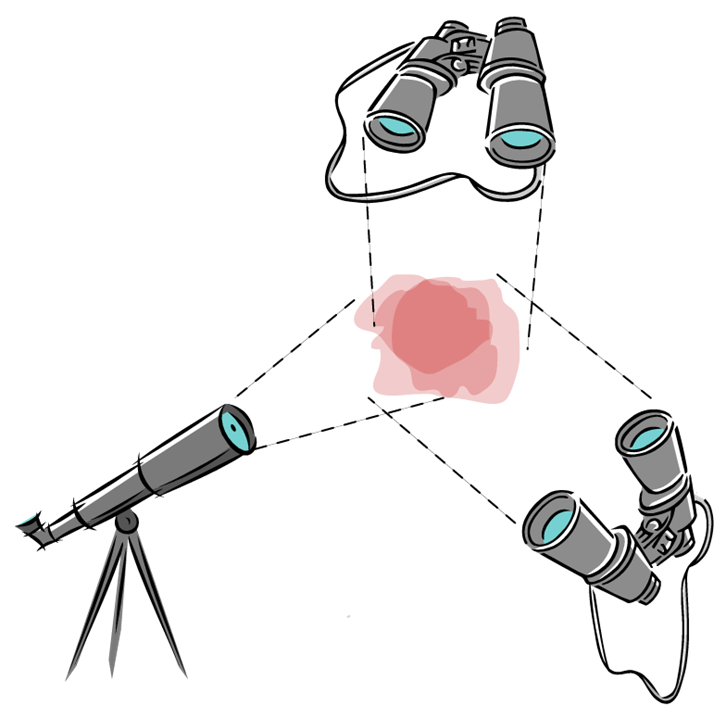 5th International PhD School on Empirical Research Methods in Informatics, 2016
5th International PhD School on Empirical Research Methods in Informatics, 2016
DTU Compute, 15.-19.8.2016, Lyngby
Since the term "Software Engineering" has been coined in 1968 at a NATO conference in Garmisch, this field has been dominated by theory building, mostly using mathematical methods and programming. However, this has changed over the last decade. Now, the methodological focus has moved to include empirical methods - and they become more are more important. In the future, purely conceptual and implementation work will not satisfy the accepted standards of scientific work any longer. Read more >>> -
 ACM Student Research Competition, 2016
The ACM Student Research Competition (ACM SRC) is an internationally recognized venue enabling undergraduate and graduate students to experience the research world, share results and rub shoulders with academic and industry luminaries. The ACM SRC is generously sponsored by Microsoft Research.
Read more
ACM Student Research Competition, 2016
The ACM Student Research Competition (ACM SRC) is an internationally recognized venue enabling undergraduate and graduate students to experience the research world, share results and rub shoulders with academic and industry luminaries. The ACM SRC is generously sponsored by Microsoft Research.
Read more
-
 1st International Workshop on Human Factors in Modeling, 2015
1st International Workshop on Human Factors in Modeling, 2015
co-located with MODELS, 28.9.2015, Ottawa
Modeling is done by modelers - yet so far, research has focused on the product rather than the producer. To some degree, this may be due to the shortage of expertise of empirical research methods in the modeling community. And we are trying to change that by offering HuFaMo as a forum for people with this interest. Read more >>> -
 4th International PhD School on Empirical Research Methods in Informatics, 2015
4th International PhD School on Empirical Research Methods in Informatics, 2015
DTU Compute, 17.-21.8.2015, Lyngby
Since the term "Software Engineering" has been coined in 1968 at a NATO conference in Garmisch, this field has been dominated by theory building, mostly using mathematical methods and programming. However, this has changed over the last decade. Now, the methodological focus has moved to include empirical methods - and they become more are more important. In the future, purely conceptual and implementation work will not satisfy the accepted standards of scientific work any longer.Read more >>> -
 Dagstuhl Seminar Human-Centric Development of Software Tools
Dagstuhl Seminar Human-Centric Development of Software Tools
Dagstuhl Castle, May 25.-28 2015, Dagstuhl
Software development has always been a human activity. Unusable software-development tools contribute cost, error, and complexity to the already expensive and failure-prone task of software development. One might reasonably expect that these challenges would lead human factors in software development to be a core research topic. Unfortunately, this has not been the case. The overarching goal of this seminar is to raise the level of engagement and discourse about human factors in software engineering and programming languages. Read more >>> -
 Visitor: Alexander Knapp
Visitor: Alexander Knapp
Guest Lecture, April 10, 2015, Lyngby
Alexander's visit this year is intended to start work on a grant application for deeper collaboration on the FMI-project.
Read more
-
 Petri Nets and Software Engineering (PNSE) 2015
Petri Nets and Software Engineering (PNSE) 2015
June 22-23, 2015, Brussels
Traditionally co-located with the Petri Nets conference, this year there will be a greater emphasis on SE.
Read more
-
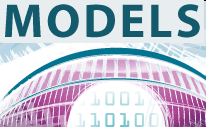 ACM Student Research Challenge at MODELS 2014
ACM Student Research Challenge at MODELS 2014
Oct., 1.-2., 2014, Valencia
For the second time MODELS will host an ACM Student Research Competition (SRC), sponsored by Microsoft Research. The ACM SRC is a forum for undergraduate and graduate students to showcase their research, exchange ideas, and improve their communication skills while competing for prizes at MODELS 2014.
Read more
-
 3rd International PhD School on Empirical Research Methods in Informatics, 2014
3rd International PhD School on Empirical Research Methods in Informatics, 2014
DTU Compute, 16.-20.8.2014, Lyngby
Since the term "Software Engineering" has been coined in 1968 at a NATO conference in Garmisch, this field has been dominated by theory building, mostly using mathematical methods and programming. However, this has changed over the last decade. Now, the methodological focus has moved to include empirical methods - and they become more are more important. In the future, purely conceptual and implementation work will not satisfy the accepted standards of scientific work any longer. Read more >>> -
 Doctoral Symposium
Doctoral Symposium
July, 21.-25., 2014, York
STAF is a federation of a number of the leading conferences on software technologies. It was formed after the end of the successful TOOLS federated event in 2012, providing a loose umbrella organisation, with steering committee, that aims to provide continuity. The STAF Doctoral Symposium is aimed at providing mentoring and feedback to PhD students working in the areas covered by STAF.
Read more
-
 Free Models Initiative 2013
Free Models Initiative 2013
A workshop at MODELLIERUNG'14, Vienna
It is broadly accepted that collections of example data ("Corpora") are an important driver for the progress of a scientific discipline, including Model-based software development. However, we see only very few real models being published. The FMI 2014 workshop aims at investigating reasons and exploring solutions for this situation. Read more >>> -
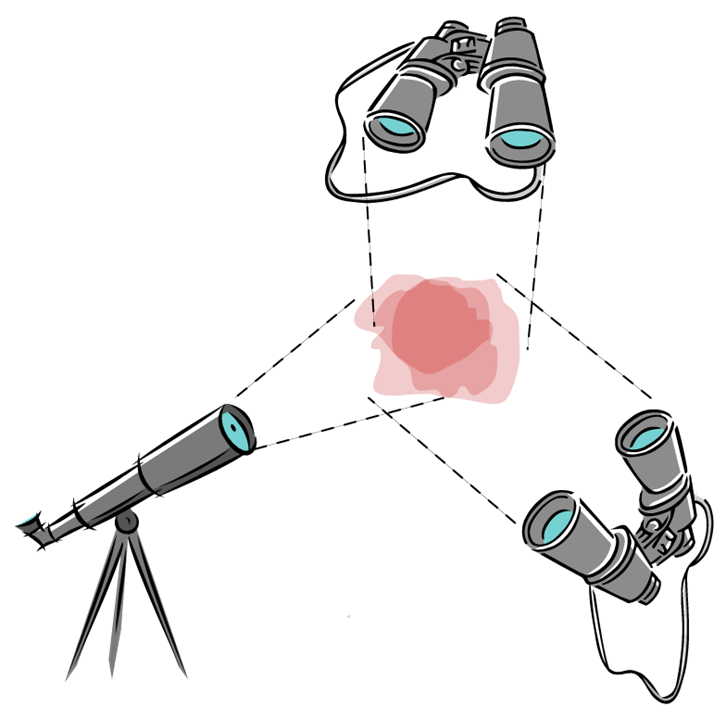 2nd International PhD School on Empirical Research Methods in Informatics, 2014
2nd International PhD School on Empirical Research Methods in Informatics, 2014
May, 19.-23., 2014, Trento
Since the term "Software Engineering" has been coined in 1968 at a NATO conference in Garmisch, this field has been dominated by theory building, mostly using mathematical methods and programming. However, this has changed over the last decade. Now, the methodological focus has moved to include empirical methods - and they become more are more important. In the future, purely conceptual and implementation work will not satisfy the accepted standards of scientific work any longer. Read more >>> -
 Visitor: Alexander Knapp
Visitor: Alexander Knapp
Guest Lecture, March, 14., 2014, Lyngby
Constraint relationships are a means to define qualitative preferences on the constraints of soft constraint problems. Modelers express preferences over the satisfaction of constraints through a partial order which is lifted to sets of domains. We give an overview of the formalism and discuss the connection of constraint relationships to the soft constraint framework of c-semirings.
Read more
-
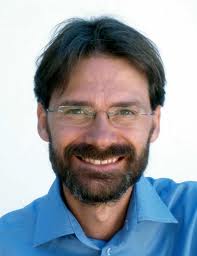 Visitor: Bjørn Regnell
Visitor: Bjørn Regnell
Guest Lecture, March, 4., 2014, Lyngby
This talk presents on-going research at the Dept. of Computer Science at Lund University on a free requirements modelling tool called reqT.org providing a DSL embedded in Scala that turns requirements into semi-formal computational entities that mixes natural-language requirements with a graph-like, recursive structure of entities, attributes and relations representing essential sub-disciplines of software requirements engineering. The evolving metamodel of reqT and the tool's main features are presented together with modelling examples. A constraint solver is integrated with reqT to provide release planning support. The reqT tool has been applied in an educational context with the goal of illustrating different requirements modelling techniques and experiences from student projects and directions of further research are discussed.
Read more
-
 1st International PhD School on Empirical Research Methods in SE, 2013
1st International PhD School on Empirical Research Methods in SE, 2013
August, 19.-23. 2013, Kgs. Lyngby
Since the term "Software Engineering" has been coined in 1968 at a NATO conference in Garmisch, this field has been dominated by theory building, mostly using mathematical methods and programming. However, this has changed over the last decade. Now, the methodological focus has moved to include empirical methods - and they become more are more important. In the future, purely conceptual and implementation work will not satisfy the accepted standards of scientific work any longer. Read more >>> -
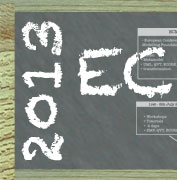 ECOOP/ ECSA/ ECMFA 2013
ECOOP/ ECSA/ ECMFA 2013
Posters, Tools, and Demos, July, 2.-5., 2013
This session of ECOOP/ECSA/ECMFA presents posters, tools, and demos for all three conferences. In special sessions, in-depth discussions are accommodated for.
Read more
-
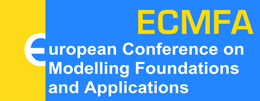 ECMFA 2012: The 2012 European Conference on Modeling Foundations and Applications
ECMFA 2012: The 2012 European Conference on Modeling Foundations and Applications
July, 2.-5., 2012
Model Driven Engineering (MDE) is a software development approach based on the use of models for the specification, design, analysis, synthesis, deployment, testing and maintenance of complex software systems, aimed to produce high quality systems at lower costs. Considering ever increasing complexity and cost of development of software, MDE has received considerable attention from the industry and researchers in academia.
ECMFA is the key European conference aiming at advancement of techniques and furthering underlying knowledge related to Model Driven Engineering. In the past seven years, ECMFA has provided an ideal venue for the interaction among researchers interested in MDE both from the academia and industry. ECMFA 2012 will continue the series of successful events of the last years. Read more